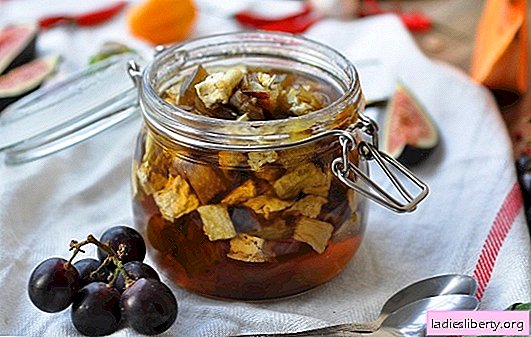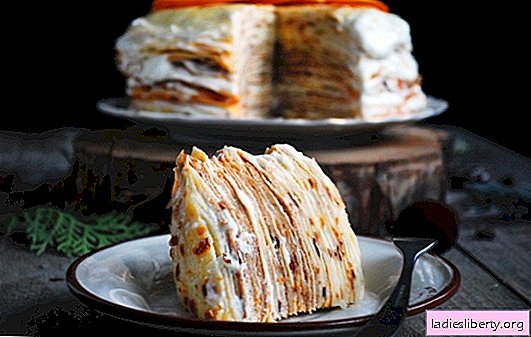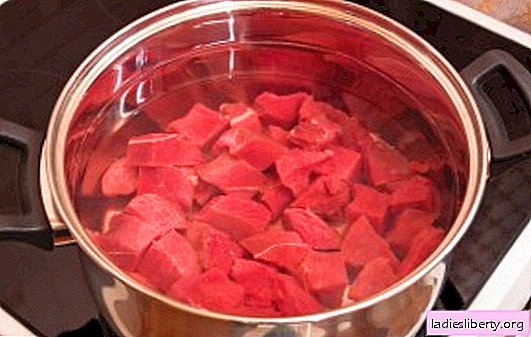
For several millennia, basil has been highly valued for its taste and aroma, and therefore is one of the culinary experts' favorite spices. Scientists were able to identify another positive side of mint annual grass - the medicinal effect on the human body.
Features of the chemical composition of basil: plant benefits
Ancient Indian culture has long been considered sacred. Sorcerers used it to treat colds, prevent colds, and increase vigor during a hard working day. To date, the beneficial properties of grass, there are much more, and this presence is explained by its special composition. It includes:
• essential oils - the content of the substance in the leaves reaches 1.5%. It is the esters that give the plant healing properties and a unique smell. They include lanalol, tarragon, imen, camphor, methylchavicol, eugenol;
• tannins and mineral elements - contained in the leaves and stems of the plant;
• glycosides and sugar;
• amino acids, glycosides, enzymes;
• volatile - play an important role for the body, killing harmful and pathogenic microorganisms;
• vitamins C, B2, PP, rutin, carotene;
• saturated in fiber, protein and vegetable fats.
The calorie content of a fresh plant is quite low - only 27 kcal is contained in 100 g of foliage, but when dried, this number increases by almost 10 times and amounts to 250 kcal.
The healing qualities of basil and the benefits for the body
Seasoning popular in cooking can be considered a real find for the treatment of diseases of various nature. Grass growing on the windowsill at home will at least prevent colds and protect against viruses. Indian culture has the following effects on the body:
• antimicrobial;
• antiviral;
• disinfectant;
• bactericidal;
• antioxidant;
• painkiller;
• anti-aging.
Thanks to such effects, the culture is ranked as the number of natural antibiotics. The main benefits of the plant for the body:
1. To lower the heat, a decoction of flowers and basil leaves is prepared.
2. Effectively eliminates the basil of the oral cavity in the form of ulcers. It kills up to 99% of various bacteria and germs, suitable for treating stomatitis, tonsillitis, strengthening gums, eliminating tartar and even relieving toothache.
3. Certain components that are part of the composition are able to determine the various causes of the headache and effectively deal with it.
4. To get rid of cough, as well as various diseases of the bronchi, lungs, whooping cough and tuberculosis, in particular, infusion of basil is used.
5. Basil is useful for heart diseases, as its constituent substances can destroy harmful cholesterol in the body.
6. Recommended basil for people with kidney stones. The components of the plant have a diuretic effect on the body and gradually dissolve kidney stones. The decoction relieves spasms and pain with renal colic.
7. Spice infusions should be taken with colitis, gastritis, flatulence.
8. Seen in plants and anti-stress capabilities. Basil copes with nervous stress and stress, strengthens the nervous system.
9. Detailed studies of the plant showed that it can inhibit the growth and spread of malignant cancer cells and HIV infection.
10. The combination of essential oils and vitamins helps the plant maintain the beauty of the skin, hair and nails from the inside of the body. The appearance of the skin improves, the nails are strengthened, and the hair becomes shiny and beautiful - which can even better indicate a healthy body.
11. It is useful for elderly people to regularly use seasoning in food to increase the elasticity of blood vessels, to facilitate the flow of rheumatism and arthritis.
12. Fragrant leaves are a natural antiseptic that can be used to disinfect exposed skin lesions. With internal use, basil disinfects damaged mucous membranes of the digestive tract.
Annual grass has universal properties and is able to defeat many of the diseases that people often encounter. It perfectly strengthens and stimulates the immune system, improves memory.
The use of basil: the benefits of alternative methods of treatment
There are such common ways to use holy seasoning:
1. Making tea. The most common way is to add basil to tea. This kind of plant, like lemon basil, perfectly cools the body in hot weather. In India, it is customary to use basil as an independent tea leaves without adding other herbs.
2. A decoction of basil is prepared to calm the nervous system, increase the tone of the body and increase vitality. It should be noted that such a drink does not contain caffeine, like usual tea and coffee.
3. Basil essential oil is saturated with volatile. It has the same beneficial properties as a plucked plant. But an additional advantage of the oil is carminative effect. A remedy is used for bloating and acts as a natural antispasmodic.
4. Alcohol tincture on basil leaves helps to overcome various bacteria and viruses that provoke the appearance of bronchitis. The same remedy will ease the symptoms of flu and colds. For cooking you will need:
• basil - 30 g of dried leaves;
• St. John's wort - 70 g of grass;
• vodka - 0.5 l.
Herbs should be infused with a strong drink for at least a week in a dark place. You need to use 30-40 drops, adding them to warm water for rinsing the throat three times a day.
5. Other applications:
• if nausea or motion sickness occurs during the journey, you need to hold several leaves of the plant in your mouth;
• Regular rinsing with basil tincture and compresses will help relieve eye fatigue and restore sharpness to eyesight;
• tincture on flowers is recommended for women who have decreased sexual desire or frigidity;
• with aching toothache, you can moisten cotton wool in basil ether and apply to a sore spot.
Basil use precautions, harm and contraindications to the plant
In some circumstances, a medicinal plant should not be consumed, it can cause basil and harm to the body. The main contraindications:
• pregnancy;
• phlebeurysm;
• epilepsy;
• impaired blood coagulation;
• stroke, thrombosis, heart attack, ischemia, thrombophlebitis;
• with unstable pressure and diabetes, the permitted seasoning dosage should be strictly observed.
In addition to useful substances, mercury compounds are also observed in the composition, because of which even a completely healthy person should not use basil in large quantities so as not to cause poisoning on the body. Fresh leaves should not be chewed for too long - this leads to the destruction or weakening of tooth enamel. Use preparations for treatment based on basil can be no more than three weeks.











